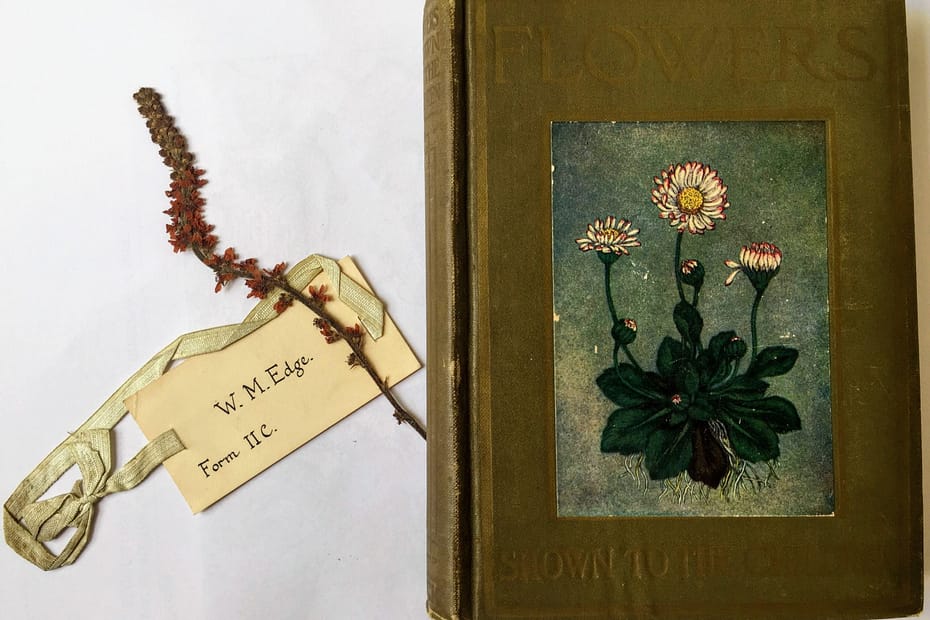100 years ago, a Miss Marston, teacher at Wyggeston Grammar school, donated a wildflower book to pupil Miss W.M. Edge of Form IIc. ‘Flowers Shown to the Children’ was part of a series of child-centred nature books published in 1920.
I was thrilled to find a Pressed flower, and handwritten bookmark inside. The book, and the act of giving it, reveal a very different time, when natural history was more prominent in society – albeit particularly amongst its wealthier members.
Since then, time children spend in nature continues to decline. Kids are ‘becoming extinct in the wild‘ – with only 10% of respondents to one survey visiting a green space in a year. It’s a poverty issue, and an access issue. Children from deprived wards are 9x less likely to have access natural greenspace, and those with a lack of access to local green space might well live less long.
Meanwhile, nature conservation and ecology remain white middle-class pursuits, with a relative lack of young, female, disabled or BAME role models. And despite some successes, we are in a world in which 40 percent of UK species have decreased in the last 50 years and 15% are under threat.
The natural history content in our curriculum has declined steadily over the years to almost nothing. We no longer teach whole organisms in context, let alone identification skills: 83% of British children don’t know what a bumblebee looks like.
So it is more important than ever that – In addition to protecting and improving our most important wild places – we do three things.
1. We ensure everyone has a green space nearby, and we incorporate more biodiversity into the fabric of our towns and cities;
2. People are encouraged and supported to get outside in their local green space regularly. They are accessible and inviting and reflect their local communities.
3. We improve the opportunities for people to connect in a personal and meaningful way with a natural world. Finding meaning, compassion, emotion and beauty in life.
This is a complex set of issues, with no single solution. But there is a root cause, which is value. We tend to value the things we understand, so on International Biodiversity Day, we are lending our support for the campaign for a new GCSE in natural history. Whilst the Department for Education have yet to announce a final decision, the Cambridge exam board expects to have teaching ready to go by 2021.
The Covid crisis has increased importance of the natural world for many people, with more column inches and government support at least in words than ever before. 35% of people said they were visiting local green space more often since lockdown, and the environment remains high on the political agenda. We have the opportunity to ensure that our next generation Is more engaged and able to join the fight to save nature than ever before.
I’d like to think Miss Edge would agree.
